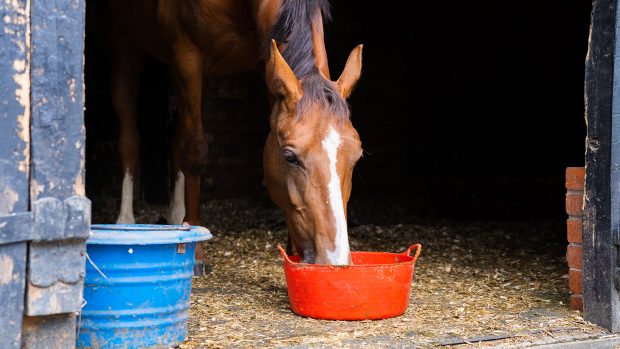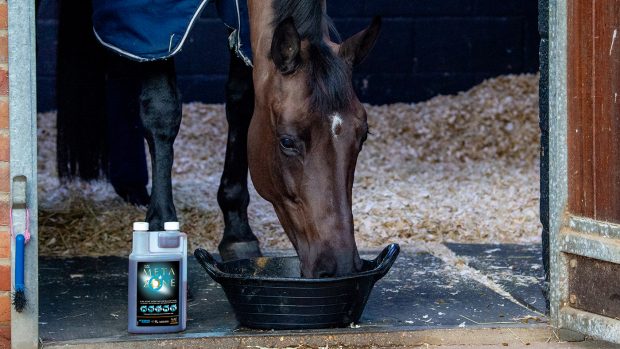Promotional Feature with Saracen Horse Feeds
With riders across the country working hard in preparation for the 2018 competition season, we ask European young rider eventing champion Will Furlong to share his dos and don’ts for getting your horse fit. Also don’t miss Will’s video, which includes tips and cavaletti exercises for bringing your horse back into work after his winter break.
DO be creative
Prevent boredom during the early stages of fitness by using your imagination to keep your horse interested. Incorporate circles, loops, transitions and serpentines while schooling — even in walk — and make use of what you have to give your horse plenty of changes of scenery.
“We have very few hills nearby, but we do have the beach, so we use that as much as we can for conditioning and to give the horses a change of scenery,” says East Sussex-based Will.

Set mini goals each week to help you measure your progress
DO embrace polework
Polework is invaluable for helping improve rhythm, balance, suppleness, agility and straightness, as well as adding variety to a horse’s work.
“There’s so much you can do with poles, progressing to cavaletti and then gridwork as fitness increases,” says Will.
DO give your horse a health ‘service’
“Make sure you’re starting your fitness work from the best place possible,” says Will. “Get your horse’s teeth checked before you begin, make sure your worming programme is up to date and have a vet check your horse, including for any soundness or flexion issues.”
DO remember your own fitness
“There should be more awareness of the importance of rider fitness,” says Will. “Core stability and flexibility is especially important and Pilates can be very beneficial. But the most important thing is to be consistent and incorporate fitness work into your own routine.”
DO give yourself more time than you think you need
When planning your programme, always factor in a couple of extra weeks — it’s better to have extra time to fine tune your horse for your first competition than risk not being ready in time.
“Work back from your main aim for the season, and factor in early season events, training shows and qualifiers,” says Will. “If you find yourself with an extra week, you can either back off the work and give your horse some rest, or use it to work on something specific ahead of your first competition.”

Will uses the nearby beach to give his horses a change of scenery and help them stay fresh
DON’T be afraid to tweak your programme if needed
Every horse is different and can be unpredictable. Don’t feel as though you must stick rigidly to your programme, even if your horse isn’t progressing as fast as you had expected, or if you are further ahead than anticipated.
“Try to set mini goals each week so you can measure your progress,” says Will.
DON’T lunge your horse too soon
“I personally wouldn’t lunge until the horse is trotting under saddle, as it can be strenuous for them,” warns Will. “On the other hand, long-reining is undervalued and can be useful in the early walk stages, especially if your horse is very fresh and excitable.”
DON’T push your horse too far past tiredness
“Fitness work is all about feel, and knowing your horse,” says Will. “It’s about pushing them just past the point of tiredness, to improve stamina and endurance, but not going too far and emptying the tank.”
DON’T spend every day in the arena
“Make sure you are keeping your horse mentally fresh, especially if they are a bit older,” says Will. “Give them plenty of hacking, rather than too much work in the arena, and remember that it’s about quality over quantity, especially in the later stages of fitness.”
DON’T forget to bear in mind the weather
“If your horse has had time off in the autumn, and you are bringing him back into work over the winter, don’t forget to plan for adverse weather conditions — such as icy roads or snow. It’s all about forward planning.”




